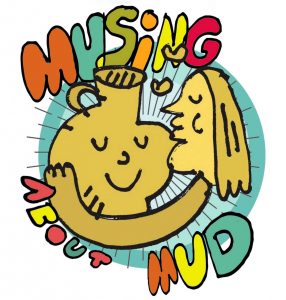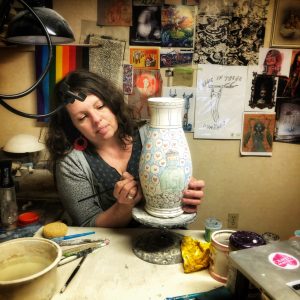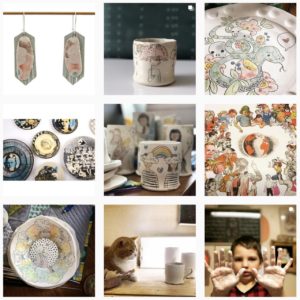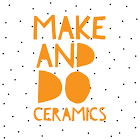by Carole Epp | Aug 27, 2010 | Uncategorized
craft +design enquiry is currently calling for papers that relate to the theme of ‘relational craft and design’.
Despite the vigorous debate surrounding the disciplinary parameters and practice roles for craft and design in recent years, their relationship is characterised by wildly divergent interpretations. ‘Craft’ has become a significant and weighty word again at a time when the meaning of ‘design’ is shifting both within and outside the visual arts. Today we note everything from drug design to policy design, where ‘design’ indicates a higher level of consideration, conceptual and strategic thinking. Within this context, contemporary craft might appear as specific and cultural, while design’s seeming ubiquity carries certain risks. Curiously, the rise of design and its claims to a social role as a change-agent links contemporary design to earlier and well-understood craft polemics. For example, has design taken over the making of the object from craft? Does this help explain the neglect of craft as practice and description in studio-based art education and the concomitant rise of design within university settings in the past ten years? Art cannot be excluded when addressing these interdisciplinary questions. Might Nicolas Bourriaud’s concepts of ‘relational art and aesthetics’ be used to re-conceptualize these fields, despite, or perhaps in light of, his view that too great an emphasis on craft acts to exclude audiences? Is the legitimacy of craft shifting from the production of objects to the creation of links between people? This issue (craft + design enquiry #4) calls for papers that consider wide-ranging topics: How is ‘craft’ articulated (or elided) in contemporary architecture, fashion, and design generally; as well as film, if one considers the rise of model-making and other visual effects in contemporary culture? What does it mean that certain overlooked aspects of craft have been at work in all of these practices, but were often referred to with different language, through terms such as ‘technique’ and ‘process’ during the years that craft was ‘unfashionable’? Within this trajectory, what is the current understanding of the relationship (and lack thereof) between craft and design in itself? We welcome contributions that access or re-interpret craftsperson’s work as ‘design’ or reconsider the ‘ground’ on which such disciplinary claims have been made in the first place. The guest editors for this issue ofcraft + design enquiry on relational craft and design, and the convenors of this session at the AAANZ 2010 conference, are Professor Peter McNeil and Dr Rosemary Hawker. This issue of craft + design enquiry will be published in mid-2012. The call for papers closes on 30 June 2011. In addition, a special paper session of the Art Association of Australia and New Zealand (AAANZ) Annual Conference in Adelaide 1-3 December 2010 will be devoted to this topic and papers may be considered from that occasion. Call for Papers closing date 30 June 2011 To submit a paper please register online by the closing date of 30 June 2011. Refer to author guidelines for further information. For inquiries relating to this issue or submission of papers, please contact one of the Co-Guest Editors, Peter McNeil or Rosemary Hawker For administrative enquiries, please contact Jenny DevesWebsite
by Carole Epp | Aug 15, 2010 | Uncategorized
Just Tell Us
WHY AMERICAN CRAFT IS IMPORTANT
Contest Rules
- Tell us Why American Craft is Important in 500 words of less
- Deadline is October 30, 2010
- You must include the following:
- Your name
- Mailing address
- Phone Number
- Email Address
- Your favorite craft retailer or artist’s studio (include city and state)
- Prize is $500 gift certificate to your favorite Craft Retailer.
- Either mail your entry to:
- American Craft Week
- 1530 East Boulevard
- Charlotte, NC 28203
- Or email it to [email protected]
- Look for the winning entry at AmericanCraftWeek.com in December
- Members of the CRAFT Board and their immediate families are not eligible
Website
by Carole Epp | Aug 10, 2010 | Uncategorized
The Faculty of Fine Arts at York University (Toronto – Canada) invites proposals for papers for
Staging Sustainability: Arts, Community, Culture, Environment , a conference taking place April 20 – 22, 2011. The conference will provide an opportunity for artists and those who support the arts in a myriad of ways – from scholars, critics, producers and designers to policy-makers, industry and government – to engage in interdisciplinary dialogue about issues associated with the creation of environmentally sustainable arts practice and performance. The conference committee welcomes proposals for papers that consider the relationship between the cultural and ecological aspects of sustainability in the arts, and may encompass aspects of subjectivity with respect to community and identity. Proposals should include:
-a 250-word abstract
-presenter’s name & affiliation
-mailing & email addresses Please forward proposals to: Ina Agastra, Executive Assistant to the Dean
Faculty of Fine Arts, York University,
4700 Keele St., Toronto, ON, Canada M3J 1P3
[email protected] Submission deadline: September 1, 2010 More information: http://www.yorku.ca/finearts/stagingsustainability/call-for-papers.htm
by Carole Epp | Apr 12, 2010 | call for entry, emerging artist, job posting, monday morning eye candy, movie day, residency opportunity, show us your influences, technical tuesday
|
Due to extensive discussion and interest in participating in CRITICAL Santa Fe expressed during the Philadelphia NCECA Conference, the Call for Papers deadline is extended to April 23, 2010.
CRITICAL Santa Fe Registrations are filling up. Register Now!
The record attendance at the NCECA Philadelphia Conference brought considerable attention to NCECA’s regional symposium, CRITICAL Santa Fe, October 27-30, 2010. This Symposium will address criticism in ceramics.
REGISTRATION IS LIMITED TO 200 PARTICIPANTS.
(303) 828-0911 or mail it to us: 77 Erie Village Sq. Suite 280 Erie, CO 80516
We look forward to your participation in this important event for the Ceramics field!
|
|
|
|
| Contact Information
NCECA Office
~~~~~~~~~~~~~~~~~~~~~~~~~~~~~~~~~~~~~~~~~~~~~~~~
phone: 866-266-2322
~~~~~~~~~~~~~~~~~~~~~~~~~~~~~~~~~~~~~~~~~~~~~~~~
|
|
by Carole Epp | Apr 4, 2010 | Uncategorized
2010 UAAC Conference / Congrès AAUC 2010 Guelph University / Université Guelph October 14-16 octobre
Proposals for papers should reach session chairs no later than May 3
ECONOMY, COMMUNITY AND SELF-EXPRESSION – CRAFT AND SOCIAL DEVELOPMENT
From the socialism of the Arts and Crafts Movement to the radical interventions proposed by “craftivists”, the material, makers and processes of craft have been mobilised for social change. Central to this panel discussion are the communities created through craft — whether on a local, global or virtual level. These range in time and space from the DIY movement documented in Faythe Levine’s 2009 film Handmade Nation to the historical Canadian Guild of Handicraft, the Grenfell Mission in Labrador and the Home Arts Association in Great Britain to initiatives like the Navajo Crownpoint Rug Auction and Amazi Abesifazane or Voices of Women project in South Africa.
Perhaps because much of craft production is embedded in living culture and intangible cultural heritage it has attracted the attention of a wide range of scholarly approaches. Cultural geographers, craft historians, anthropologists, philosophers, art historians, women’s studies and material culture scholars and folklorists have all tried to decode the halo of meaning surrounding craft production within the social context.
Craft gets pressed, for better or worse, into social service because it speaks to people, it is perceived as accessible and useful. In this context, papers may address, but are not limited to, the following:
-The revelation of class, gender, and sexuality through economies of craft
-Transnationalism, cultural hybridity, and race as these relate to the role of craft in social development
-The transmission of traditional skills through craft cooperatives or finding a new relevance for traditional skills
-The intersection of craft and tourism as it relates to cultural identity and rural development
-The relationship of poverty with craft or craft as a survival skill
-“Doing good” or creating craft for those in need
Contact either Chair:
Gloria Hickey Independent scholar and curator St. John’s, NL [email protected]
Elaine Cheasley Paterson, PhD Craft Historian, Department of Art History Concordia University, EV 3.765 1455 De Maisonneuve Boulevard West Montreal, Quebec H3G 1M8 514.848.2424 ext. 4605 email: [email protected]
Please send documents in .doc. or .rtf format only. Submissions from students should be accompanied by a letter of support from their supervisor.
All participants at the UAAC Annual Conference, speakers or not, must be UAAC members in good standing with a 2010 Membership number.









